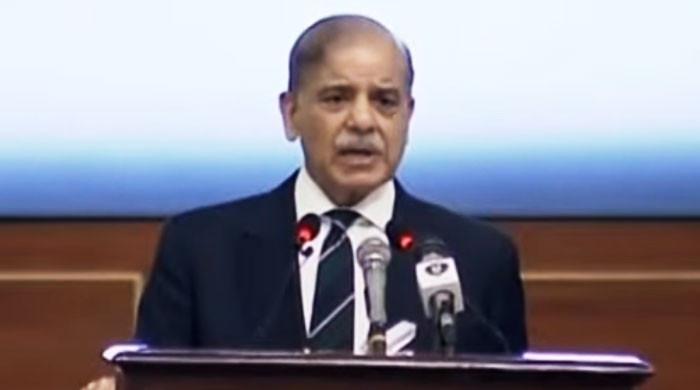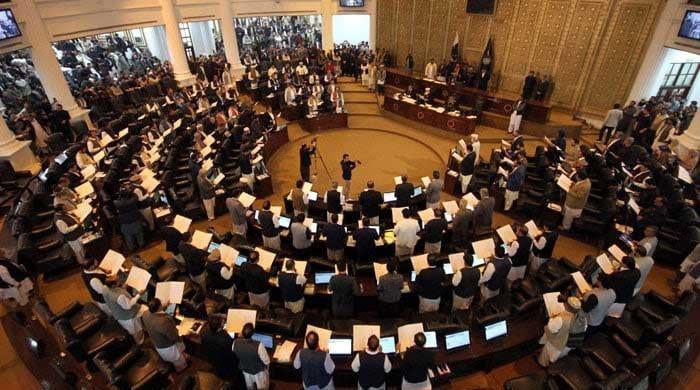Senate passes cyber crimes bill with amendments
Senators proposed around 50 amendments to the draft law, after which it will go back to the National Assembly for discussion
July 29, 2016

ISLAMABAD: The Senate on Friday unanimously passed the controversial Prevention of Electronics Crimes Bill 2016 with around 50 amendments proposed to the original draft law.
The law envisages 14-year imprisonment and a Rs 5million fine for cyber terrorism, seven-year imprisonment each for campaigning against innocent people on the internet, spreading hate material on the basis of ethnicity, religion, and sect, or taking part in child pornography.
The bill was unanimously adopted by the Senate Standing Committee on IT and Telecommunications earlier this week after being passed by the National Assembly with simple majority in April this year.
After the proposed amendments, the bill will now go back to the National Assembly where lawmakers will discuss the amendments.
The bill has been criticised by the civil society members and rights groups for putting curbs on freedom of expression.
Speaking after the passage of the bill, Leader of the Opposition Senator Aitzaz Ahsan said senators had proposed better amendments to the bill, adding that a section was incorporated for parliamentary oversight over the bill besides strengthening of judiciary oversight.
He said around 50 amendments were proposed to the bill passed by the National Assembly. However, he said there was room for improvement.
14-year jail, Rs5m fine for cyber terrorism
The Prevention of Electronic Crimes Bill 2016 envisages a 14-year imprisonment and Rs5 million for cyber terrorism, and seven-year imprisonment each for campaigning against innocent people on the internet, spreading hate material on the basis of ethnicity, religion and sect or taking part in child pornography, which can also entail a Rs500,000 fine.
A special court will be formed for investigation into cyber crimes in consultation with the high court.
The law will also apply to expatriates and electronic gadgets will be accepted as evidence in a special court.
The bill will criminalise cyber-terrorism with punishment of up to 14 years in prison and Rs5 million in penalties.
Similarly, child pornography will carry sentences of up to seven years in jail and Rs5 million, with the crimes being non-bailable offences.
The bill also aims to criminalise terrorism on the internet, or raising of funds for terrorist acts online, with sentences of up to seven years in prison.
Under the law, terrorism, electronic fraud, exaggeration of forgery, crimes, hate speeches, pornographic materials about children, illegal access of data (hacking) as well as interference with data and information system (DOS and DDOS attacks) specialised cyber-related electronic forgery and electronic fraud etc would be punishable acts.
It will also apply on the people who are engaged in anti-state activities online from their safe havens in other countries. Illegal use of internet data will cost three-year jail terms and Rs1 million fine. The same penalties are proposed for tampering with mobile phones.
Data of internet providers will not be shared without court orders. The cyber crime law will not be applied on the print and electronic media. Foreign countries will be accessed to arrest those engaged in anti-state activities from there.











